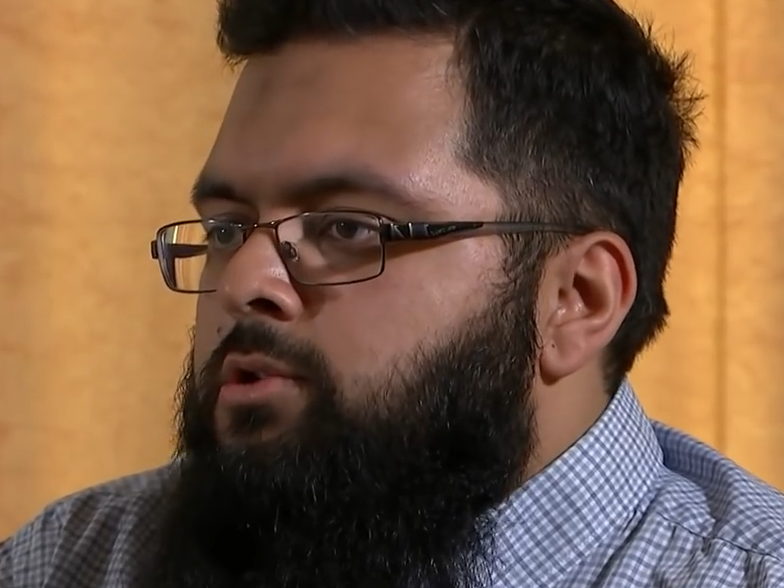
A High Court judge was correct in finding that a Home Office press release about tackling extremism at universities and colleges that labelled a man as an “extremist hate speaker” was an expression of opinion, the Court of Appeal has held.
It rejected an appeal by Dr Salman Butt (pictured), chief editor of the website Islam21C, against Mr Justice Nicol’s findings that the statement complained of was one of opinion and that it indicated in general terms the basis of the opinion, namely the views of Dr Butt which were in the public domain.
The court also rejected the Home Secretary’s application for permission to appeal against the judge’s finding that the natural meaning of the press release was that Dr Butt was “an extreme hate speaker who legitimises terrorism and from whose pernicious and poisonous influence students should be protected”, saying that his determination was “unassailable”.
Butt had sued over a Home Office press release entitled “PM’s Extremist Task Force: Tackling Extremism in Universities and Colleges Top of the Agenda” which appeared on a Government website in September 2015.
The release named him as one of several speakers who had expressed views at university events which were “contrary to British values”.
Butt claimed the press release meant that he was “an extremist hate speaker who legitimises terrorism” and was “likely to radicalise students”, while the Home Secretary argued that the words complained of only meant that he had expressed views contrary to British values.
The Home Secretary also relied on the defence of honest opinion under section 3 of the Defamation Act 2013, arguing that the press release was a statement of opinion.
In the Court of Appeal Lady Justice Sharp, with whom Lord Justice Underhill, Vice-President of the Court of Appeal, Civil Division, and Sir Rupert Jackson agreed, said Mr Justice Nicol had not taken the view that a statement that someone was an extremist was a statement of opinion, irrespective of context – but he had held that it was necessarily so in the press release in question.
This was because the statement was presented as the evaluation made by the Extremism Analysis Unit (EAU), which was set up to support government departments and the wider public sector in understanding extremism, and which reached its assessment by examining Butt’s public statements before assessing how they conformed to “British values”.
The judge had clearly been aware of the importance of context in considering whether a statement was opinion, and had not overlooked Butt’s arguments.
But Mr Justice Nicol had properly considered that the statement about Butt was, in its immediate and wider context, an evaluative one – the EAU was presented as an evaluative and informative body which supported government departments, and which assessed Butt before the new relevant policy and guidance were introduced.
“In this case, it was apparent from the press release that the ‘label’ applied to Dr Butt essentially involved a two-stage process of evaluation by the EAU, assessing Dr Butt’s ‘on the record’ views about matters touching on religious, social, political and moral issues and then comparing this assessment against the yardstick of ‘British values’,” said Lady Justice Sharp.
“The whole exercise was inevitably highly value-laden, particularly where the reader was not given an exhaustive definition of the yardstick of such values and where the partial definition was itself open textured.”
The judge’s identification of Butt’s publicly expressed views as the subject matter of the comment was relevant at that stage.
“There may be circumstances where the content of a government press release is purely factual,” Lady Justice Sharp went on.
“However, governments have views and opinions and often express them publicly. Whatever the expectations might be about the content of such a press release, what matters is not the position in the abstract, but what was actually said, and how what was said about Dr Butt was presented.
“The fact that in different circumstances a court might have to decide whether such an allegation was true or false took Dr Butt’s case no further,” she said, adding that “the mere fact that a statement may in principle be capable of being objectively proved is not sufficient to take it outwith the protection afforded by the defence of honest opinion.
“In my judgment that would be the position here: that is, the statement about Dr Butt would still be defensible as honest opinion, even if, contrary to my view, it was to be regarded as an inferential one of fact, rather than an evaluative judgment.”
Picture: Channel 4 News/Youtube
Email pged@pressgazette.co.uk to point out mistakes, provide story tips or send in a letter for publication on our "Letters Page" blog
